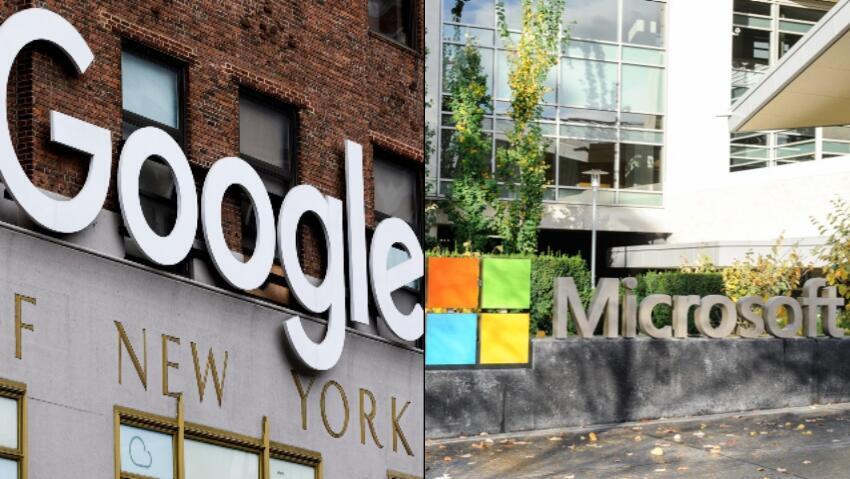[Islamabad] Pakistan's largest IT festival, ITCN Asia 2024, concluded on Thursday, generating an expected $500 million economic impact this year. The 25th edition of the 'Information Technology and Telecommunication Network' (ITCN) Asia showcased the latest technological advancements, featuring domestic and international companies and highlighting Pakistan's growing status as a technology hub.
The festival, held at the Expo Center in Karachi, began on Tuesday and was inaugurated by Sindh Governor Kamran Khan Tesori. It featured 500 stalls from a wide range of national and international companies. ITCN sources reported that the festival attracted significant attention, with over 70,000 visitors, including 350 foreign delegates from countries such as Saudi Arabia, the UAE, China, Singapore, Azerbaijan, Bahrain, Iran, and Egypt.
The three-day exhibition aimed to support investors and entrepreneurs in the IT sector and position Pakistan as an emerging technology hub globally. It offered attendees networking opportunities, conferences, workshops, and a platform to showcase solutions across various sectors, including cloud data centers, cybersecurity, education, banking and finance, health and pharma, e-commerce, and artificial intelligence.
750 companies, both domestic and international, with major global brands such as Google, TikTok, Microsoft, Odoo, and Huawei participated in the festival. According to Radio Pakistan, "ITCN Asia is anticipated to generate over $500 million in investments and business revenue, significantly contributing to Pakistan's economy."
ITCN Asia hosted a series of key conferences and summits, such as the Digital Transformation Conference, Investor Summit, Digital Banking Conference, Information Security Conference, Cloud and Data Center Conference, Startup Conference, E-Commerce Conference, Gaming and Animation Summit, and Blockchain Conference.
Since its inception in 2001, ITCN Asia has grown into Pakistan's largest IT and telecom event. It provides a platform for the world's leading brands to showcase state-of-the-art products and services. The festival promotes business-to-business alliances and has been instrumental in establishing Pakistan's presence on the global IT map, attracting significant foreign and local investments.
This year, ITCN Asia will further solidify Pakistan's position in the global tech landscape by hosting the 2nd edition of the World CIO 200 Summit on August 30, a global event held in 55 countries. The summit will bring Chief Information Officers (CIOs) worldwide to Karachi, enhancing Pakistan's role in the international tech ecosystem.
Shaza Fatima Khawaja, Pakistan’s Minister of State for IT and Telecommunication, told The Media Line that "the government is unwavering in its commitment to strengthening Pakistan's digital ecosystem, viewing it as crucial for the nation's future socio-economic development." She emphasized Islamabad's goal of boosting IT exports to $25 billion and stressed the need for collaborative efforts to build an inclusive, sustainable, secure digital future.
Khawaja further explained that digital transformation is vital for economic growth, innovation, and global competitiveness, noting the government's efforts to build a more inclusive, knowledge-based economy. "By promoting this type of economy, the government aims to establish a foundation for long-term growth, where technology and innovation lead to prosperity and a better quality of life for everyone," she added.
Pakistan's IT sector is rapidly evolving and has become a significant economic growth and innovation driver. With a young and tech-savvy population, the country is emerging as a hub for software development, IT services, and digital startups. The government's proactive support through initiatives such as tax incentives, grants, and infrastructure development has created a conducive environment for sector growth.
Despite challenges like power shortages, internet outages, regulatory hurdles, and occasional political instability, the IT sector's potential remains high. Promising opportunities in areas such as artificial intelligence, FinTech, and e-commerce continue attracting interest from local and international stakeholders, paving the way for sustained growth and innovation in the coming years.
According to official data, Pakistan's IT exports increased by 34% in July 2024, reaching $286 million, a notable rise compared to the 12-month average of $269 million. IT now accounts for 46% of the country’s total exports for the first month of the fiscal year 2025, underscoring Pakistan's increasing global significance as a leading provider of high-quality IT services.
Dr. Khurshid Nizam, Event Director and President of ITCN Asia, told The Media Line that "each year, ITCN Asia offers a platform for innovation and economic development, bringing together all stakeholders—from policymakers to global and local tech institutions, professionals, and thought leaders." Nizam highlighted the sector's continuous growth and its influence on the global stage, stating that "international alliances are enhancing Pakistan's technological capabilities and positioning the country as a key player in the global IT arena."
4 View gallery


Despite tremendous progress, connectivity remains a challenge
(Illustration: Shutterstock)
He also noted that "the sector's rapid development has not gone unnoticed by global tech giants," with many companies now expanding their footprint in Pakistan and forming strategic partnerships expected to accelerate further growth. Nizam mentioned, "Saudi Arabia is interested in partnering with Pakistan on joint ventures in information technology, given their capital resources and our skilled workforce."
Meanwhile, Karachi-based IT consultant Beenish Zahra emphasized the opportunities for Pakistan’s IT sector in the Gulf countries, noting that "by offering advanced software solutions, we can set any organization on the path to success." She highlighted Saudi Arabia’s investments in the IT sector, which have resulted in increased job opportunities.
However, Yasir Bashir, a digital rights advocate from Rawalpindi, pointed out the significant challenges within Pakistan's IT landscape, particularly the poor state of internet services. He criticized the lack of accountability and transparency in addressing internet connectivity issues, calling for urgent action to improve infrastructure and support the sector's growth.
Earlier, the Pakistan Software Houses Association (P@SHA) warned that Pakistan's economy could face losses of up to $300 million due to internet disruptions caused by a new national firewall. Ali Ihsan, Senior Vice Chairperson of P@SHA, stated that the firewall's implementation has led to prolonged outages and unreliable VPN performance, impacting business operations and causing significant financial damage.




